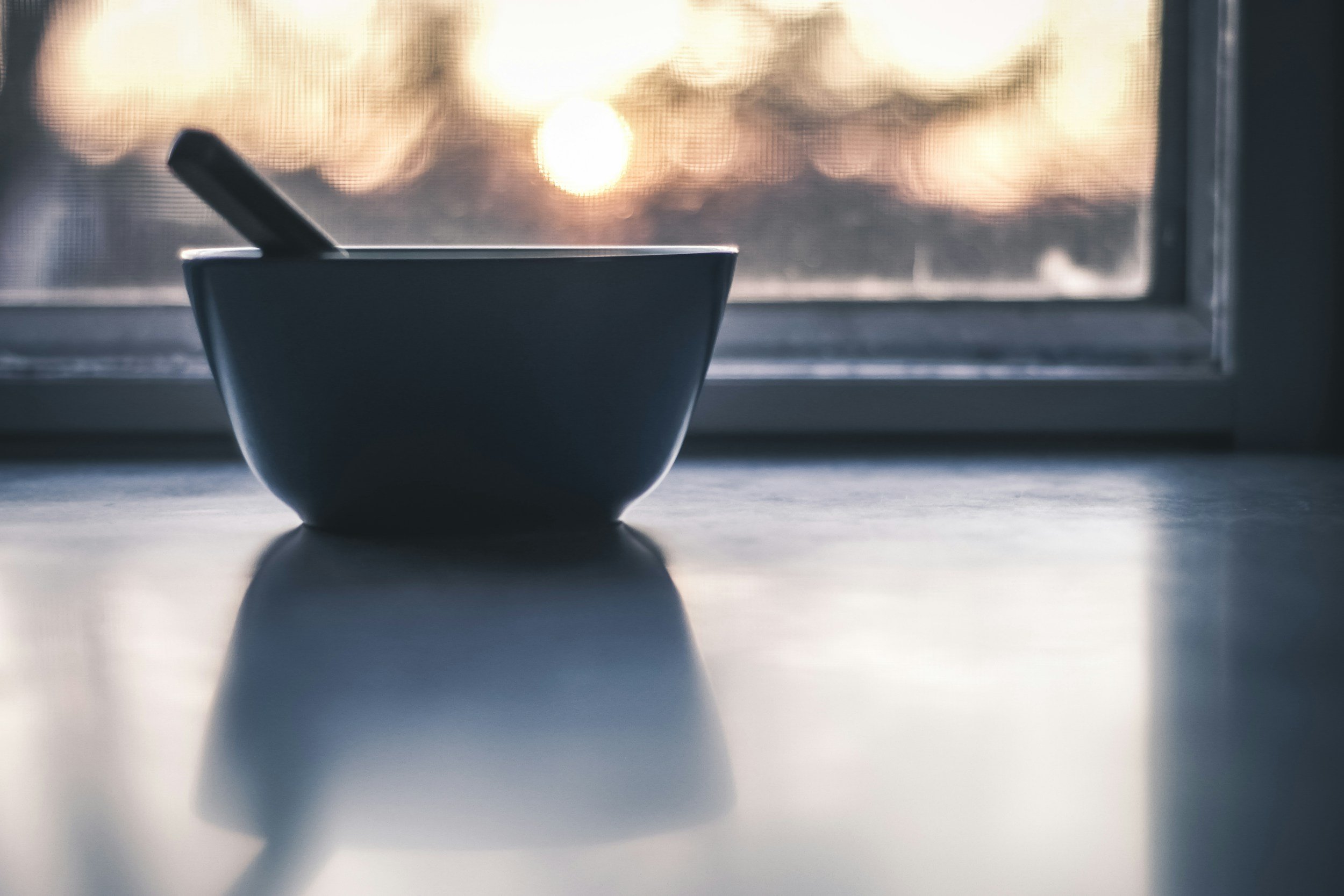Your Gut Craves Rhythm, Not Rules.
Many people feel like they are doing all of the “right things” and still not moving the needle in their health journey to where they would like to see it. They’re taking the supplements, they are eating all of the “right” foods, and drinking gallons of water a day, feeling like they are doing everything right. However they still feel bloated, constipated, tired or just off.
If this sounds like you, you are not alone.
I find that we often forget that our bodies are cyclical, living systems…and not machines. A lot of the time it's not about being perfect and doing everything down to a T, but more being in sync with your body and its natural flow.
And here is the secret - this is where your gut thrives - on rhythm and not rigid rules.
When we reconnect with our bodies' natural rhythm, and also with the natural systems around us, we create safety and predictability in our gut that it actually needs to heal, regulate and flourish.
Here's how some rhythms (and not rules) can change the way your digestion, energy and mood feel throughout the day.
Your Gut and Circadian Rhythm
Your gut has its own internal clock that follows its own daily rhythm. Nearly every cell in your digestive system operates on a circadian schedule - your stomach acid production to enzyme release, gut motility, and even how your microbiome behaves.
Your internal timing influences how well you digest food, absorb nutrients, regulate hunger hormones, and fend off inflammation. When your daily patterns are consistent (meaning eating around the same times, sleeping at night, waking in the morning) your gut gets the cues it needs to function smoothly.
But when you eat at erratic times, stay up too late, snack right before bed, or your body goes into a high stress mode, it throws off your gut’s natural rhythm. The signals get crossed, and symptoms start to show up like:
Bloating or indigestion after meals
Irregular or unpredictable bowel movements
Mid-day energy crashes or sugar cravings
Sleep troubles or a “wired but tired” feeling
Mood swings or worsened anxiety
Think of your gut like music. When everything is timed and in harmony, the music is smooth. But when instruments come in off-beat or out of sync, the entire rhythm gets thrown off and your body just doesn't feel right.
Creating gentle patterns like eating meals at roughly the same time each day, waking up roughly the same time each day, and resting / winding down or going to sleep at the same time each day can have a profound impact on how your gut feels.
Eat with the Sun
Since our digestive system operates on a circadian schedule, and your body is tuned to the natural light-dark cycle, try this: let the sun guide your eating rhythm.
Just as your sleep is impacted by sunlight and darkness, so is your digestion. Aligning your meals with the sun’s rise and fall can help bring ease, consistency, and better flow to your digestion and energy. This can look like :
Morning (waking): Eating within 1–2 hours of waking helps stabilize your blood sugar, regulate your cortisol rhythm, and signal to your gut (and bowels) that it’s safe to wake up and get moving. Skipping breakfast or waiting too long to eat can throw off your stress hormones, slow down digestion, and lead to late-afternoon crashes or late-night cravings.
This doesn’t have to be a heavy meal—just a smoothie with protein and healthy fat, overnight oats with chia and berries, or scrambled eggs with greens can do the trick.
Lunch (midday): Around midday, our digestion is naturally the strongest. This is when stomach acid production, enzyme activity, and bile flow are at their peak—meaning your body is better equipped to break down and absorb a more substantial, nutrient-dense meal. Making lunch your biggest meal gives your body the fuel it needs when it can actually use it best.
Dinner (winding down): As the sun starts to set, your digestion starts to slow down too. That’s why late, heavy dinner’s often leave people feeling bloated, restless, or wired at bedtime. By keeping your evening meals lighter and finishing up with them up at least 2–3 hours before bed - you give your gut time to rest, repair, and detox overnight.
Sleep: The Unsung Hero
Sleep isn't just something that benefits our energy levels, focus or mood but also a powerful digestive reset. So you may notice that when your sleep is off, you digestive tract is off too.
Research has shown that disrupted or inconsistent sleep can:
Alter the balance of your gut bacteria
Increase gut permeability (aka “leaky gut”)
Disrupt appetite-regulating hormones
Heighten inflammation
Slow down your digestion the next day
The frustrating part? You can be eating all the right foods and taking all the best supplements—but if your sleep is all over the place, your gut healing can stall.
Since our body craves consistency, and not perfection, creating gentle, predictable rhythms around sleep can have a profound impact on your digestion and energy. This can look like :
Dim the lights after sunset : Melatonin (your sleep hormone) is triggered by darkness and doesn’t just help you fall asleep, it also plays a role in gut lining repair and immune modulation. Dimming lights or using warm lighting in the evening helps signal to your brain and gut that it's time to wind down.
Create a wind-down ritual : Whether it’s a calming tea, journaling, a warm bath, or breathwork, having a consistent nighttime ritual helps move you out of “go mode” and into rest. This drop in nervous system activity is amazing for good digestion and restorative sleep.
Sleeping and waking at similar times : Your gut bacteria are surprisingly punctual and they like to wake up and go to sleep with you. Keeping your sleep and wake times fairly consistent helps reinforce the body’s natural rhythm and keeps everything (from bowel movements to hunger signals) running more smoothly.
Sleep is not lazy.
Sleep is not optional.
Sleep is medicine.
Stress Rhythms Matter
Think about gut health, we often jump straight to food. But your gut is also deeply influenced by your nervous system. Your gut and your brain are in constant communication, thanks to the vagus nerve. This system is like a two-way radio: stress in the mind can affect the gut, and inflammation in the gut can affect the mind. That’s why things like chronic bloating, food sensitivities, or irregular digestion often show up during periods of high stress—even if nothing about your diet has changed.
The issue isn’t stress itself. Stress is part of life.
The problem is the absence of rhythm around stress.
We’re not meant to be in fight-or-flight mode all day long, jumping from task to task, screens to emails, traffic to to-do lists etc. Our body needs moments of pause to signal, “You’re safe. You can soften now.” And when that signal gets sent, your gut finally has the chance to do what it does best: digest, absorb, and restore.
Lets face it, aiming for a stress-free life isn’t realistic, but rather aim for ebb and flow. Seeing your rhythms of tension and relaxation and acknowledging them, or helping them to balance. Ways to build that rhythm into your day:
Take 3–5 deep belly breaths before meals to help activate your parasympathetic ("rest and digest") nervous system.
Take a short walk after lunch to support digestion and clear mental clutter.
Mark the end of your workday this could be anything from something like stretching, an herbal tea, or simply sitting in your car taking a few moments for yourself.
Create boundaries around stimulation: fewer notifications, slower mornings, quieter evenings or whatever way works for you best.
This isn’t about adding more to your plate—it’s about shifting how you approach your day.
Your gut doesn’t want you to chase perfection.
It wants rhythm.
It wants nourishment.
It wants you, grounded, steady, and listening.
So instead of tracking every bite or forcing your body into someone else’s schedule, try this:
Wake, eat, move, and rest with the rhythms of the natural world around you and watch your gut begin to soften, trust, and thrive.




